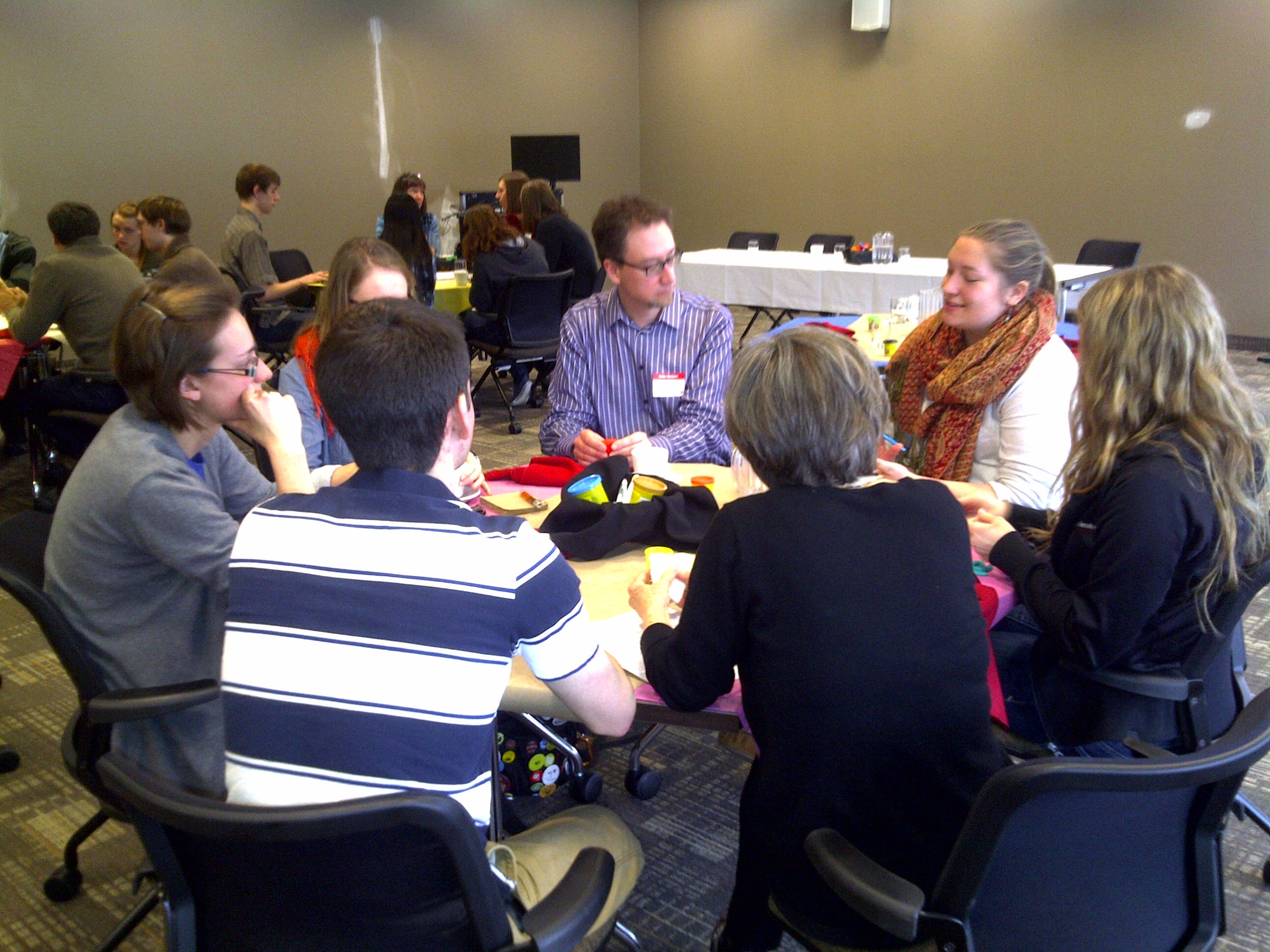by: Ally Siebert
The student diet rarely gets a three star review, unless you consider peanut butter and beer to be gourmet. Students who cook for themselves are often limited by thin slices of time and pretty skinny budgets.
Food is not the only kind of nourishment we students forget about during the school year. I’m convinced that the years I spend studying will be some of the most self-centred years of my life. It’s all about my papers, my ambition, my future; effectively, I’m most concerned with feeding myself. While I’m preoccupied with making Kraft Dinner in the microwave, I forget to check on what the world is cooking up around me.
At this time of life, we compile our cookbooks using recipes that offer advice not only on how to eat, but also on how to live. On March 15, as part of Conrad Grebel University College’s 50
th Anniversary celebrations, a group of students gathered over Saturday brunch for what was called the “Big Questions Symposium.” Four faculty members from the University of Waterloo joined us, nominated and invited by Grebel students: Kelly Anthony, teaching fellow and lecturer of Applied Health Sciences; Jeremy Bergen, professor of Christian theology at Conrad Grebel; Kirsten Müller, professor of Biology; and Hamid Tizhoosh, professor of Systems Design Engineering. Each professor spoke about their journey through school, career, and personal life, paying particular attention to the people and experiences that shaped how they had made important decisions and navigated the “big questions” that had arisen. These questions ranged from the very logistical, to the very personal, to the very philosophical. They included: What excites my sense of curiosity? How do I choose to balance children and career? In which country do I live, given my political views? How can my theology be both descriptive and prescriptive? What is my responsibility in acquiring knowledge?
But we weren’t there to answer anyone’s questions. “This symposium isn’t about specific big questions,” explained Conrad Grebel’s Chaplain and event organizer Ed Janzen. “It’s about sharing our own stories and finding encouragement or even some ideas for dealing with our own big questions.” Each of the speakers responded to life in different ways, drawing from their own unique collection of experience and expertise. What emerged, however, was that they were never working through a tough recipe alone. They all spoke to the importance of an academic or life mentor, someone who was not only inspiring in their professional life but was also willing to “walk with students,” as Professor Anthony put it. It was someone who was invested in academic studies but also focused on more than just classroom learning, who challenged them to think beyond. Many of us wanted to know if there was a magic formula for finding this kind of mentor, but the panelists who answered said that for them, it really came down to making a connection and being annoyingly persistent.
It’s this perspective on life for which many students are hungry, and I’ve noticed that much of the follow-up discussion from the event has been about mentorship. We learn a lot in the classroom, but it is the personal stories and the lived experiences of others that really teach us. As Ed Janzen remarked, “part of achieving success as a person comes from recognizing and responding and living with big questions.” The mentors we seek are not just people who we admire for their work, but are individuals who have grappled with life in all its failed recipes, difficult measurements, and new ingredients. If we’re serious about our learning, we need to practice alongside more experienced chefs. And those chefs need to be ready to take on an assistant.
Feeding ourselves is essential, because this is the time of life to figure out how we perceive the world and how we are going to participate in it. Perhaps there is some value in a few years of self-centred exploration. But we cannot forget that our cookbooks are not complete without the batter-stained pages and hand-scribbled notes of those who have tested the recipes before us; in the long run, we’ll be healthier for it.

